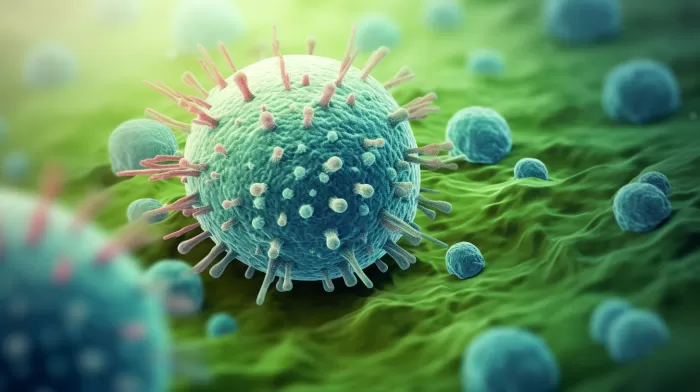The growing popularity of medical marijuana shows no signs of slowing down, and we continue to discover the potential health benefits of its active compounds, one of which is called tetrahydrocannabinol, or THC. Despite persistent roadblocks in the form of legal restrictions and limited funding for research, we’re learning that one of these powerful compounds—THC—may have the potential to protect immune cells in the body from the damaging effects of HIV.
In a study conducted on monkeys at Louisiana State University Health Sciences Center in New Orleans, THC was shown to help protect immune cells in the digestive tract, reduce inflammation, and prevent HIV from spreading beyond the intestinal tract and into the bloodstream.
Of course, the big question remains: can THC have the same protective effect for humans? Due to the challenges of acquiring permission and funding for such tests on humans, the progress of research in this area has been slow.
Unraveling THC’s potential role in HIV treatment
HIV (human immunodeficiency virus) is a notorious virus known for causing the disease AIDS (acquired immunodeficiency syndrome). HIV weakens the immune system by destroying critical cells known as T-cells or CD4 cells. This makes it difficult for the immune system to fight off infections and other diseases. Unfortunately, the fact remains that there is currently no cure for HIV, but specific medications are available to help control the virus and its progression to AIDS.
One of the most critical aspects of HIV treatment is increasing the number of CD4 cells (T-cells) in the body and lowering the viral load (amount of HIV in the blood). A low viral load allows the immune system to fight off infections and helps the body combat other illnesses.
THC’s potential role in HIV treatment is promising because it appears to both increase the number of CD4 cells and lower the viral load in the monkeys studied. To better understand how THC may protect immune cells in humans, further study is crucial.
Additional health benefits of THC
Interest in THC’s medicinal potential extends far beyond its influence on HIV. THC has already demonstrated its effectiveness in treating various health conditions, including chronic pain, inflammation, and diseases of the nervous system.
People suffering from multiple sclerosis (MS) often report that THC-containing cannabis products provide relief from spasticity, tremor, and other symptoms of the disease. MS patients also report that THC-containing cannabis products help them sleep better, reduce anxiety and depression, and improve their quality of life.
Neuropathic pain, a debilitating type of pain caused by nerve damage, is another area in which THC has shown therapeutic potential. In various studies, THC has demonstrated the ability to manage neuropathic pain and improve participants’ ability to function in daily activities. THC has also been proven effective in reducing muscular spasms, a common symptom of many different conditions.
The current state of medical marijuana’s legality and research
Despite the promising results found in studies on THC’s potential benefits, the reality is that the legal hurdles and limited funding for research remain significant obstacles. Medical marijuana is still illegal at the federal level in the United States, although some individual states have either decriminalized or legalized its use for medical purposes.
One potential solution for moving research forward is offering increased funding to scientists who seek to explore the beneficial effects of THC in various medical conditions, including HIV. This would lead to a better understanding of the compound’s potential and pave the way for the development of innovative new treatments.
In conclusion
As the evidence continues to mount in favor of THC as a powerhouse of potential medical benefits, it’s becoming more challenging to ignore the need for further research on this promising compound. As roadblocks to THC research are overcome, new discoveries, and treatments may be just around the corner, including those that may help protect immune cells from the devastating effects of HIV.
It’s essential to keep pushing for the removal of legal restrictions and the increase of funding to support THC research. This may open doors to a wealth of new knowledge about the cannabinoid and ultimately lead to groundbreaking medical advancements in the treatment of HIV and other diseases.



